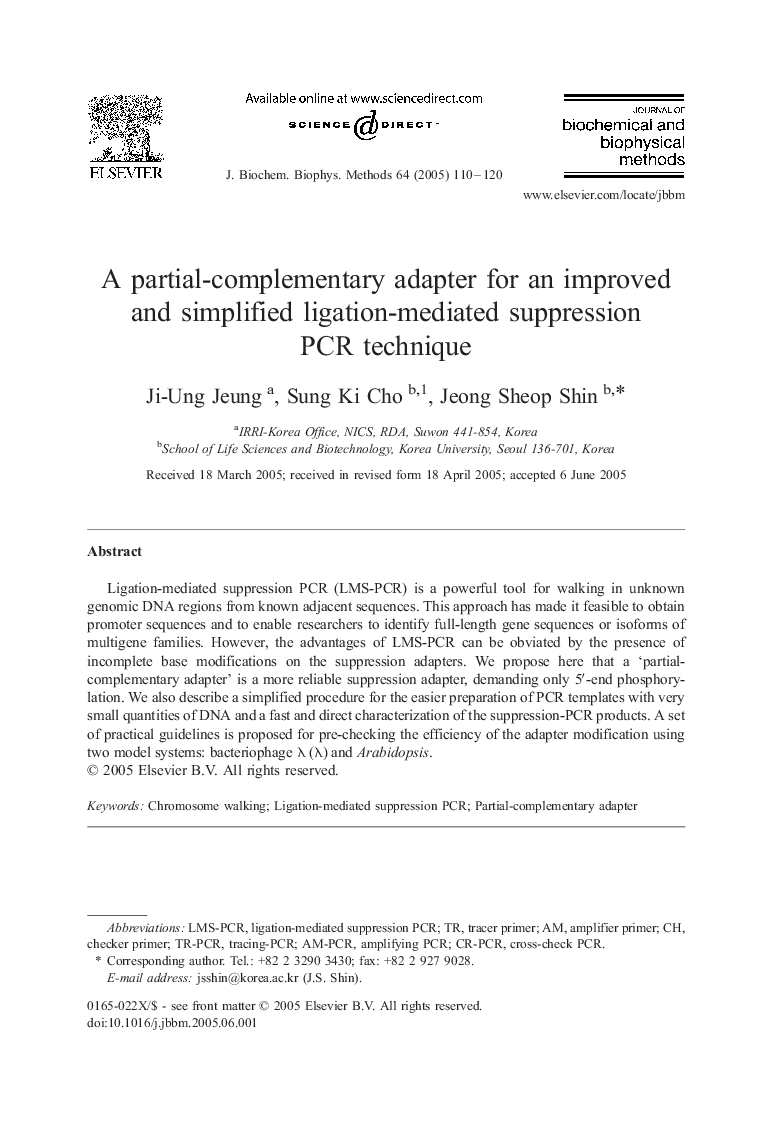| Article ID | Journal | Published Year | Pages | File Type |
|---|---|---|---|---|
| 10824934 | Journal of Biochemical and Biophysical Methods | 2005 | 11 Pages |
Abstract
Ligation-mediated suppression PCR (LMS-PCR) is a powerful tool for walking in unknown genomic DNA regions from known adjacent sequences. This approach has made it feasible to obtain promoter sequences and to enable researchers to identify full-length gene sequences or isoforms of multigene families. However, the advantages of LMS-PCR can be obviated by the presence of incomplete base modifications on the suppression adapters. We propose here that a 'partial-complementary adapter' is a more reliable suppression adapter, demanding only 5â²-end phosphorylation. We also describe a simplified procedure for the easier preparation of PCR templates with very small quantities of DNA and a fast and direct characterization of the suppression-PCR products. A set of practical guidelines is proposed for pre-checking the efficiency of the adapter modification using two model systems: bacteriophage λ (λ) and Arabidopsis.
Keywords
Related Topics
Life Sciences
Biochemistry, Genetics and Molecular Biology
Biochemistry
Authors
Ji-Ung Jeung, Sung Ki Cho, Jeong Sheop Shin,
